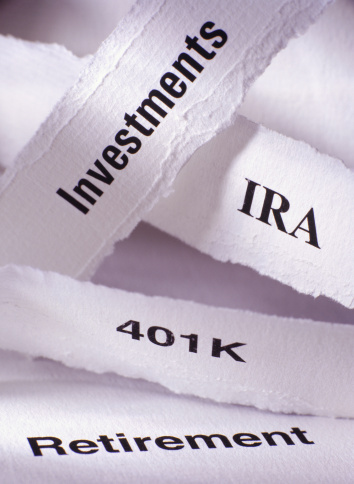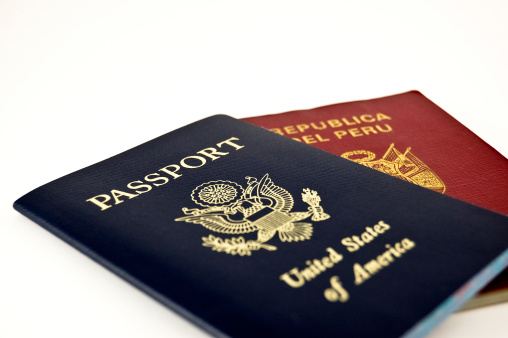Can I Invest in a Business with my IRA?
Surprisingly, yes you can invest in an active business with your retirement account. There are a many caveats and limitations, but you can usually lend money to a business, purchase shares in a corporation or LLC, or buy in as a partner receiving a share of the profits (flow-through structures).
Now, let’s talk about those limitations:
First, if you are investing in a business in the United States, your IRA can’t own shares of an S-Corporation. This is not an IRA rule, but rather a U.S. corporate statute which requires owners of S-Corps to be U.S. persons. In other words, no foreign person (for tax purposes), entity, or tax exempt /preferred structure may invest in a business structured as an S-Corp.
Next, you can’t invest in a business of which you are a highly compensated employee. Basically, the IRS wants to make it difficult for you to take money out of your retirement account as salary and thereby circumvent the distribution rules.
A highly compensated employee is an individual who:
- Owned more than 5% of the interest in the business at any time during the year or the preceding year, regardless of how much compensation that person earned or received, or
- For the preceding year, received compensation from the business of more than $115,000 (if the preceding year is 2012 or 2013), and, if the employer so chooses, was in the top 20% of employees when ranked by compensation.
I note that, if you draw a salary from a business you invest in using your IRA, you open yourself up to audit on that issue. This is especially true if you also take expense reimbursements and other payments that could be categorized as salary. I always recommend clients not take a salary when investing through a retirement account. And, if you do take a salary, to keep very good accounting records on all transactions to ensure they are below the threshold.
Next, your retirement account is prohibited from investing in a business of which you own or control more than 50%, or which is owned or controlled by any “disqualified person.” The first part of this rule is simple enough: you may own up to 50% of a business or corporation through your retirement account. To put it another way, you can’t invest in an entity (corporation, partnership, trust or estate) owned or controlled more than 50 percent by you…straightforward enough.
Now, let’s talk about who else (other than you, the owner of the account) is a disqualified person. In this section, the IRS is attempting to limit any conflicts of interest involving your IRA and related parties and to ensure all transactions benefit the retirement account and not the IRA owner.
A “disqualified person” (IRC Section 4975(e)(2)) extends into a variety of related party scenarios, but generally includes the IRA owner, any ancestors or lineal descendants of the IRA holder, and entities in which the IRA holder holds a controlling equity or management interest.
A disqualified person is defined as follows:
- A fiduciary, which includes the IRA holder, participant, or person having authority over making IRA investments,
- A person providing services to the plan such as the trustee or custodian,
- The employer who created the plan or an employee organization any of whose members are covered by the plan,
- A spouse, parents, grandparents, children, grandchildren, spouses of the fiduciary’s children and grandchildren of a disqualified person,
- An entity (corporation, partnership, trust or estate) owned or controlled more than 50 percent by a disqualified person, and
- A 10 percent owner, officer, director, partner, joint venture, or highly compensated employee of a disqualified person.
Note: brothers, sisters, aunts, uncles, cousins, step-brothers, step-sisters, and friends are NOT treated as “Disqualified Persons”.
What will happen if you (whether by accident or intentionally) break one of these many rules? If the IRS finds out, the consequences will be swift and severe. Specifically, if an IRA owner or his or her beneficiaries engage in a prohibited transaction at any time during the year, the account stops being an IRA as of the first day of that year and major penalties apply.
This means that the account is treated as distributing all its assets to the IRA owner at their fair market values on the first day of the year. If the total of those values is more than the basis in the IRA, the IRA owner will have a taxable gain that is includible in his or her income.
In addition, the IRA holder or beneficiary would be subject to a 15% penalty, as well as a 10% early distribution penalty, if the you are under the age of 59 1/2.
The prohibited transaction rules are extremely broad and the penalties harsh (immediate disqualification of entire IRA plus penalty). Thus, if you invest in an active business, you must be cautious when engaging in transactions that could be considered self-dealing or result in a direct or indirect personal benefit. Whenever you consider a complex transaction, it is important you consult with a qualified expert.
Let’s conclude with a few comments on the tax consequences of investing in an active business. If you purchase shares, and sell them for a capital gain, the profit flows in to your retirement account as any other investment – tax free to a ROTH or tax deferred in a traditional IRA. Likewise, if you lend money to a business, the interest earned passes up to your retirement account tax preferred.
If you invest in a joint venture, mutual fund, or partnership, such that you receive distributions of profits or income, rather than capital gains, your tax picture becomes more complex. Obviously, the IRS won’t let these profits go in to your retirement completely untaxed.
In other words, when you invest in a business by purchasing shares, the value of those shares go up or down based on the net income of the business. The business is earning money, paying corporate tax on its net profits, and then distributing out any after tax gains as dividends or stock appreciation. Thus, the IRS gets its cut first, then the investors benefit.
When a business operates as a partnership, untaxed net profits flow through to its members on Form K-1 to be taxed on the partner level rather than the partnership / entity level. If a retirement account were allowed to receive flow-through profits, then it would be possible to defer or eliminate tax on those profits all together.
Note: It is not possible to operate a business in the U.S. untaxed, but it is possible offshore.
To prevent this, the IRS invented “Unrelated Business Income Tax” or UBIT. In essence, UBIT is a tax at the corporate rate of 35% on profits in a retirement account on income which is not related to the accounts primary purpose of investing. Income from an active business that is not capital gains, but ordinary income, mean the IRA is operating a business and are thus these profits are UBI and taxed at 35%.
So long as you can live with the tax consequences, your IRA may invest in partnerships, LLCs, and mutual funds (but not S-Corps). To prevent a reporting mess at the IRA level, you should form a U.S. UBIT Blocker corporation, make the investment and pay the tax from that entity, and pass through “related” income or investment returns to the retirement account.
If you invest in an offshore business, which is not taxable in the United States, then you can eliminate UBIT entirely by forming an offshore UBIT Blocker. This is where IRA tax law gets really interesting.
Let’s say you want to invest in a business partnership in Panama, will own 30% of that structure, and operating profits will be passed to you without being taxed by that country. If you form an offshore IRA LLC, an offshore UBIT Blocker corporation, and make the investment from this corporation, you can eliminate UBIT.
This is because the active business profits are earned by an offshore UBIT Blocker are free from corporate level tax. If that entity were a U.S. corporation, its profits would be taxed at 35%. Because it is an offshore corporation, formed in a country with no corporate tax (such as Belize or Nevis), no tax is due.
The UBIT Blocker now passes up these profits to the LLC as dividends. Because dividends are not unrelated income, but rather investment returns, they are not taxable…and UBIT has been effectively blocked.
To be clear, I am referring to an IRA making an investment in to a business that is outside of the United States, has no US source income, and is generating active business returns with an office and staff based in Panama. I am not taking about an offshore structure investing in a business or partnership located in the United States, or a business based in America that is utilizing a foreign holding company.
I hope you have found this article interesting. If you have questions on forming U.S. or offshore IRA LLCs and/or UBIT Blocker structures, please contact me at info@premieroffshore.com. I will be happy to work with you to design a structure that maximizes privacy and protection while still in compliance with IRS retirement account regulations.











Leave a Reply
Want to join the discussion?Feel free to contribute!